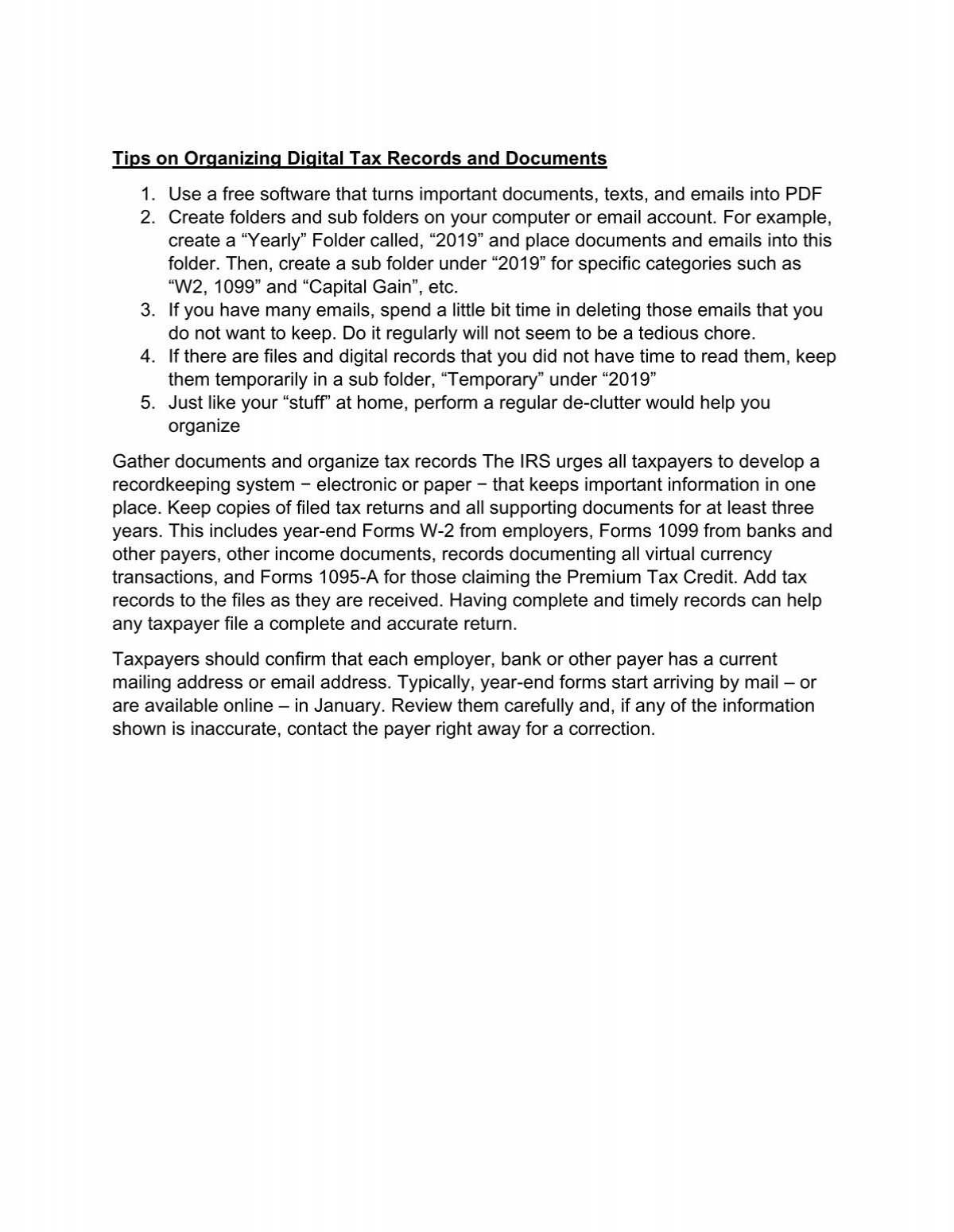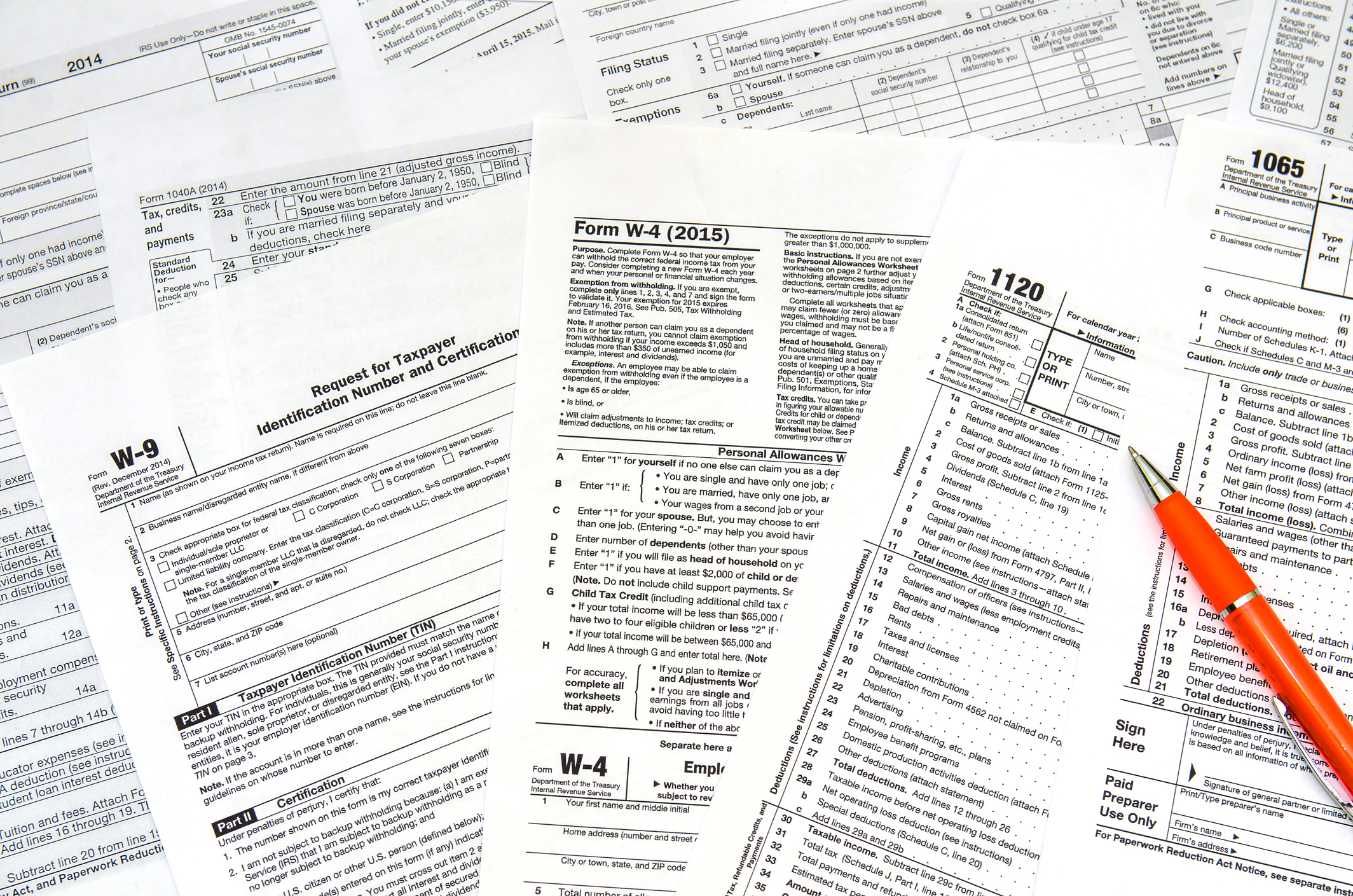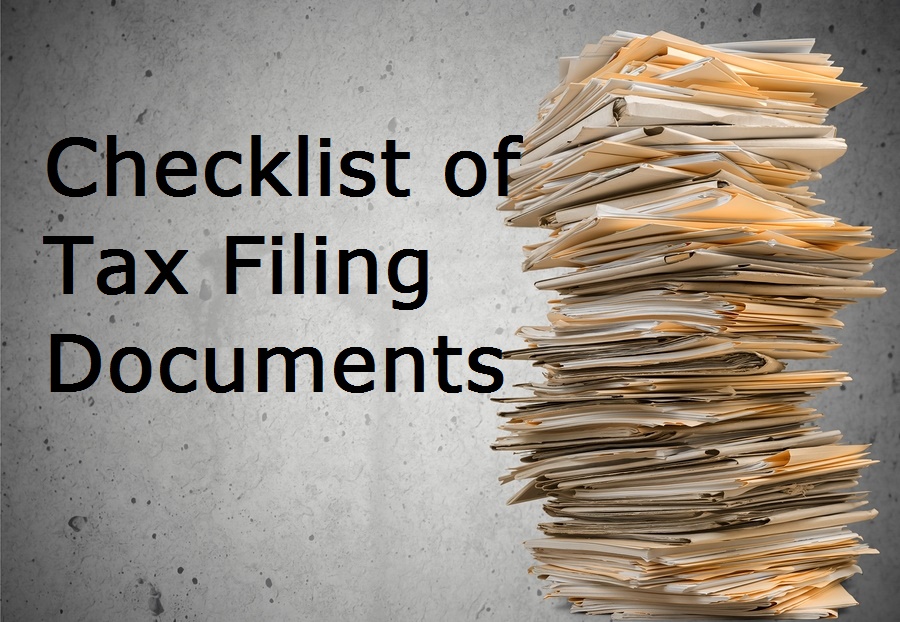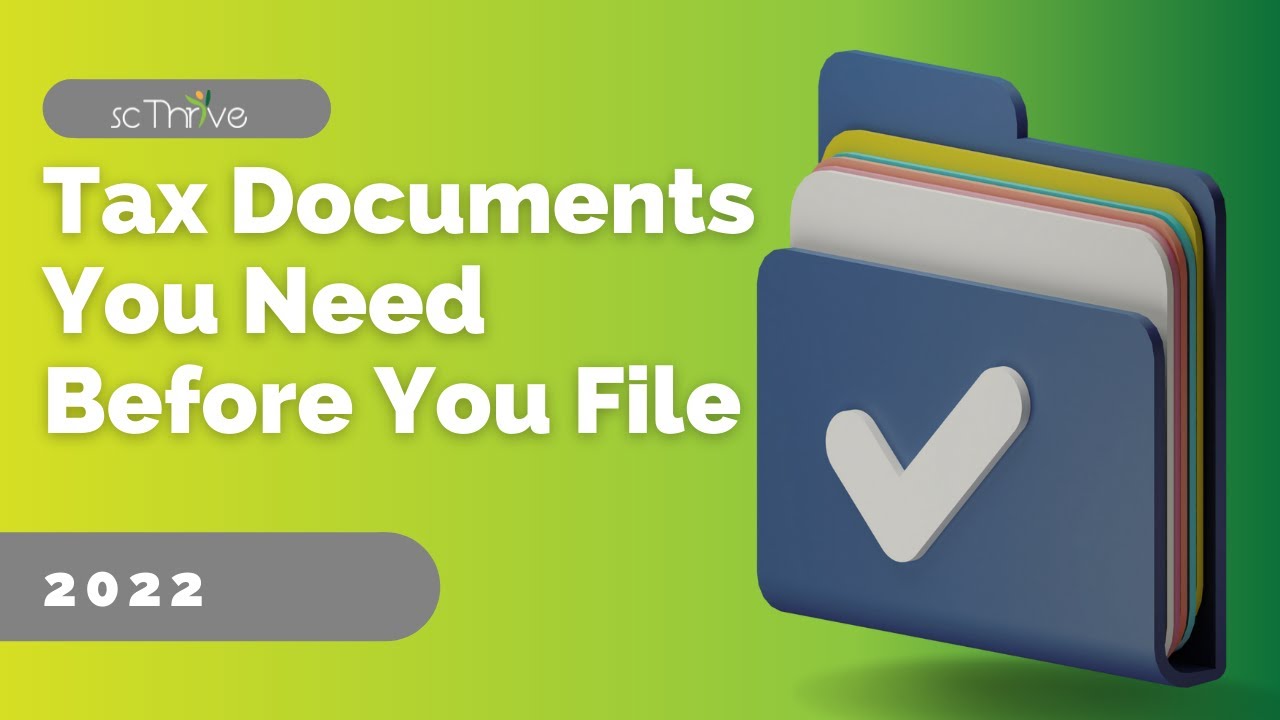5 Essential Tax Documents You Need for Filing

Preparing your taxes can seem overwhelming with the multitude of documents and paperwork required. However, organizing the right documents from the start can significantly ease this annual task. Whether you're filing as an individual or for a business, understanding which tax documents are essential is key to ensuring a smooth, accurate, and compliant tax filing process. Here are the 5 essential tax documents you need for filing, each tailored to help you navigate through the tax season effectively.
W-2 Forms: The Basic Income Report

If you’re employed, the W-2 form is your cornerstone document. It details your:
- Total earnings
- Federal income tax withheld
- Social Security and Medicare tax withheld
- Other contributions or deductions
Your employer is required to provide this by January 31, ensuring you have the necessary information to file your taxes accurately.
📌 Note: Always double-check the amounts listed on your W-2 against your pay stubs to ensure accuracy before filing.
1099 Forms: For the Self-Employed and Income Sources

1099 forms come in various types, each reporting different types of income:
- 1099-NEC: For non-employee compensation, replacing the old 1099-MISC
- 1099-INT: For interest income
- 1099-DIV: For dividends
- 1099-G: For state or local tax refunds or unemployment compensation
- 1099-MISC: Miscellaneous income, such as rent or royalties
These forms help freelancers, contractors, and self-employed individuals document their income comprehensively.
1098 Forms: Deductions and Mortgage Interest

If you’ve taken out a mortgage or paid student loans, 1098 forms provide a snapshot of your deductions:
- 1098: Mortgage Interest Statement
- 1098-E: Student Loan Interest Statement
These documents allow you to claim deductions for the interest paid on these loans, reducing your taxable income.
Receipts for Deductions

While not forms, receipts play a critical role in documenting your expenses, which can be claimed as deductions:
- Medical expenses
- Charitable contributions
- Business expenses (for self-employed individuals)
- Home office costs
- Travel expenses related to work
🔍 Note: Keep all receipts organized and itemized. Digital tools can make this process more manageable.
Schedule K-1: For Partnerships, S Corporations, and Estates

If you’re involved in partnerships or S corporations, the Schedule K-1 form is vital for:
- Reporting your share of income, deductions, credits, etc., from the business or estate
- Ensuring you report income correctly on your personal tax return
These forms can be complex, often requiring professional help to navigate, especially for multiple entities.
Having these documents organized well ahead of time will not only make the tax filing process more straightforward but also ensure accuracy, minimizing the chances of audits or errors. Remember, while the above documents are the essentials, your tax situation might require additional forms or schedules based on your specific circumstances.
When should I receive my W-2 form?

+
You should receive your W-2 form by January 31 of the year following the tax year for which it reports income. If you haven’t received it by then, contact your employer’s HR or payroll department.
What if I haven’t received a 1099 form?

+
If you believe you should have received a 1099 form but didn’t, reach out to the payer directly. They are responsible for sending out these forms by January 31. Remember to keep your records of income as you can report it without the form.
Can I claim deductions without a receipt?

+
While receipts are the best form of proof for deductions, certain circumstances might allow you to claim deductions without them. However, be prepared to provide an explanation or have some form of documentation. The IRS might audit your returns, and if you can’t substantiate your claims, you could lose the deduction or face penalties.